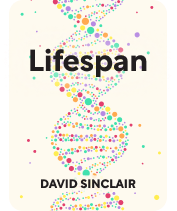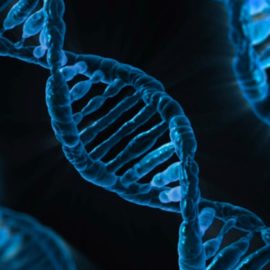

This article is an excerpt from the Shortform book guide to "Lifespan" by David Sinclair. Shortform has the world's best summaries and analyses of books you should be reading.
Like this article? Sign up for a free trial here .
Is aging inevitable? Is it possible to cure aging, in theory? How close are we to overcoming aging?
Throughout recorded history, we’ve always accepted aging as something that just happens to people. According to Australian biologist David Sinclair, aging is a disease that can be treated. Sinclair suggests a number of different ways to treat aging, either by delaying the symptoms or (in some cases) actually reversing the damage.
Here is why aging is a disease, according to David Sinclair.
The Disease of Old Age
According to David Sinclair, aging is a disease. In fact, old age shares several key traits with cancer:
- Both diseases are more common in older people (by definition, in the case of old age).
- Both diseases used to be considered impossible to treat, let alone cure.
- Both diseases are eventually fatal if left untreated.
(Shortform note: The similarities between aging and cancer might be even more profound than this. In The Emperor of All Maladies, biologist Siddhartha Mukherjee describes cancer as a corruption of our normal bodily processes—the functions that should keep us alive and healthy instead turn against us to create deadly tumors. If Sinclair’s Information Theory is right, then aging is a similar process: The epigenome starts causing the body to break down, instead of keeping it strong and healthy as it’s meant to.)
If aging is a disease, Sinclair argues, then things like arthritis, dementia, organ failure, and frailty are merely symptoms. The question then becomes: How do you cure this disease?
(Shortform note: The World Health Organization did, in fact, include “aging” in the 11th edition of the International Classification of Diseases (ICD-11). The ICD-11 went into effect in May 2019, just a few months before Lifespan was published, and it’s the current global standard for recording and reporting illnesses.)
Take Advantage of Hormesis
Sinclair says that we can prolong our own life and health through hormesis: A phenomenon by which our bodies become stronger in response to stressors like hunger, extreme temperatures, and physical damage. Hormesis activates numerous survival mechanisms, such as conserving resources and repairing cellular damage. Sinclair believes we can take advantage of hormesis not just to extend our lives, but to improve our quality of life as well.
We already employ hormesis in several ways, such as dieting, exercising, and sitting in saunas. However, Sinclair says that recent and upcoming scientific advancements will allow us to control these processes more effectively and efficiently—for example, we might be able to use an injection to strengthen our muscles without the need for exercise.
(Shortform note: In Antifragile, Nassim Nicholas Taleb tells us that the toxicologist Hugo Schulz first discovered hormesis when he noted that small doses of particular toxins would actually cause yeast cells to grow and reproduce more quickly—though higher doses would kill the yeast as expected. From this, we can see that hormesis has limits; the key is to use mild stressors, like hunger, instead of severe stressors like starvation.)
Sinclair recommends intermittent fasting (IF) as a way to trigger your body’s stress responses without causing malnutrition. He suggests several different variations of IF, saying that it’s currently unclear which method is best, but all are beneficial:
- Set aside 8 hours a day where you’re allowed to eat, and fast the rest of the time (the 16:8 method).
- Reduce your calorie intake by 75% for 2 days a week (the 5:2 method).
- Eat no food for a week once per quarter.
| Fasting Safely Johns Hopkins Medicine notes that, while IF can have numerous health benefits, it’s not for everyone. They say that the following people should not attempt intermittent fasting: People under 18 years oldPregnant or breastfeeding womenPeople with metabolic disorders like diabetesPeople who suffer from eating disorders Furthermore, if you do try IF remember that you can drink water and other zero-calorie drinks (such as black tea or coffee) during your fast periods. It’s important to stay hydrated while fasting. |
Sinclair also says that a vegetarian diet can activate hormesis. The relatively low levels of certain proteins (as compared with meat) can trigger our survival mechanisms in the same way that calorie restriction does.
(Shortform note: In addition to triggering hormesis, vegetarian diets tend to be relatively low in fat, sodium, sugar, and cholesterol compared to meat-heavy diets. Scientists believe that a vegetarian diet reduces the chance of heart disease, cancer, and diabetes, lowers blood pressure, and strengthens bones.)
Finally, Sinclair says that exercise (which, by definition, puts stress on our bodies) can greatly extend our lifespans. For example, researchers have found that exercise lengthens and protects telomeres. Telomeres are small complexes of DNA and proteins at the ends of our chromosomes that get shorter each time a cell divides. When the telomere runs out, the cell stops dividing—leading to many of the problems of old age. Therefore, lengthening telomeres can literally keep our bodies younger for longer.
Sinclair adds that exercising in low temperatures appears to boost the youthening effects of exercise, most likely due to combining the stress of working out with the stress of being exposed to cold.
(Shortform note: It doesn’t take a lot of exercise to significantly improve your health. Researchers found that 150 minutes (two and a half hours) of moderate exercise each week increased life expectancy by about seven years, and that active 70-year-olds had hearts, lungs, and muscles that were as strong as some 40-year-olds’.)
Extending Health, Not Just Life
Sinclair says that our current medical efforts are misdirected if we want to extend both life and health. Modern medicine prefers to treat one problem at a time, then send the patient away until the next problem arises. As we age, those problems become more frequent and more severe—in other words, we deteriorate. Eventually, the treatments can no longer keep up, the body fails completely, and we die.
However, age is the single biggest risk factor for numerous conditions, ranging from heart disease to cancer to Alzheimer’s. Therefore, if we could prevent—or better yet, reverse—the effects of aging, then average life expectancy and quality of life would both skyrocket.
| The Healthspan Question Sinclair uses the term healthspan, meaning how long a person stays healthy (in the same sense that lifespan means how long a person stays alive). Healthspan is a relatively new concept and still somewhat controversial: Some researchers argue that there’s no clear definition of what “healthy” means, and no concrete way of measuring “health,” and therefore it’s not appropriate to use the term in scientific literature. However, even those who say that “healthspan” shouldn’t be used scientifically acknowledge that it’s useful when talking to the general public, who are generally more concerned with understanding broad ideas. |

———End of Preview———
Like what you just read? Read the rest of the world's best book summary and analysis of David Sinclair's "Lifespan" at Shortform .
Here's what you'll find in our full Lifespan summary :
- Why biologist and geneticist David Sinclair believes old age is a curable disease
- The potential problems of a world where people never die
- How the elderly stifle the economy






